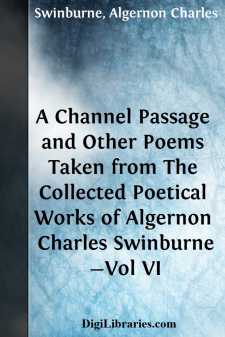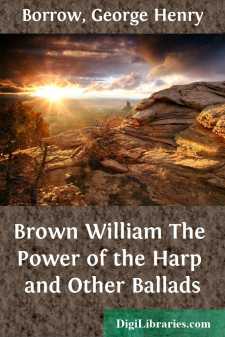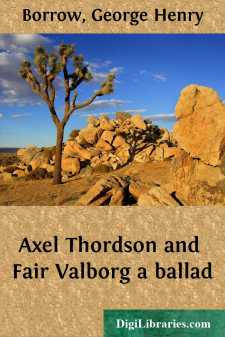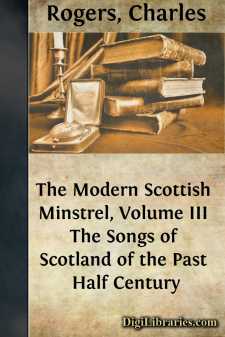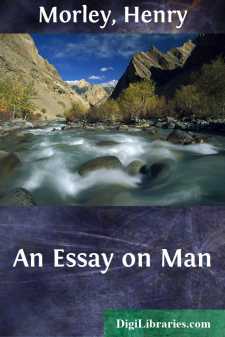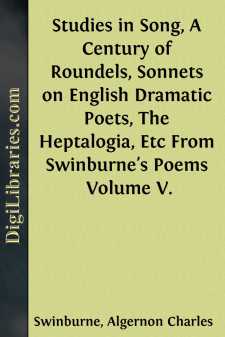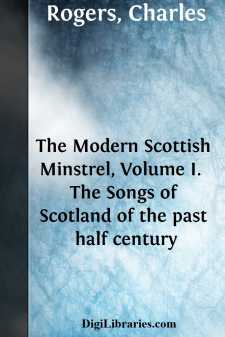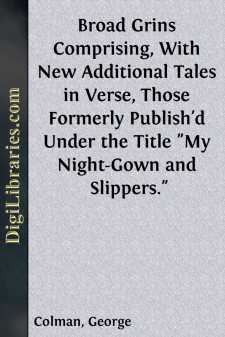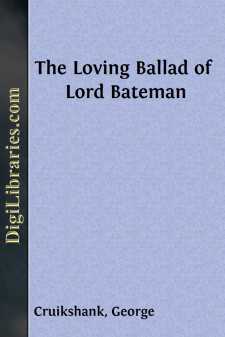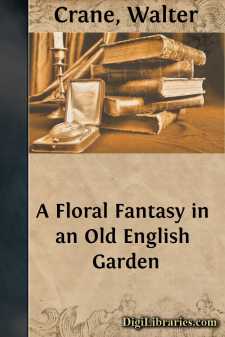Poetry
- American 96
- Ancient, Classical & Medieval 41
- Asian 15
- Australian & Oceanian 11
- Canadian 11
- Caribbean & Latin American 5
- Children's Poetry & Nursery rhymes 51
- Continental European 11
- English, Irish, Scottish, Welsh
- General 483
- Inspirational & Religious 7
- Middle Eastern 3
English, Irish, Scottish, Welsh Books
Sort by:
A CHANNEL PASSAGE 1855Forth from Calais, at dawn of night, when sunset summer on autumn shone,Fared the steamer alert and loud through seas whence only the sun was gone:Soft and sweet as the sky they smiled, and bade man welcome: a dim sweet hourGleamed and whispered in wind and sea, and heaven was fair as a field in flower.Stars fulfilled the desire of the darkling world as with music: the starbright...
more...
BROWN WILLIAM This ballad was written in consequence of the execution of William Christian, generally called William Donn, or Brown William, from the darkness of his complexion, who was shot at Hango Hill, near Castletown, in the Isle of Man, shortly after the Restoration, for alleged treason to the Derby family, who long possessed the sovereignty of Man. . . . The ballad of “Brown William,” which...
more...
AXEL THORDSON AND FAIR VALBORG. At the wide board at tables play, With pleasure and with glee aboundingThe ladies twain in fair array, The game they play is most astounding. How fly about the dies so small, Such sudden turnings are they making;And so does Fortune’s wheel withal, We scarcely know the route ’tis taking. Dame Julli grand, and Malfred Queen, At tables were their...
more...
by:
Charles Rogers
Men who compare themselves with their nearest neighbours are almost invariably conceited, speak boastingly of themselves, and disrespectfully of others. But if a man extend his survey, if he mingle largely with people whose feelings and opinions have been modified by quite different circumstances, the result is generally beneficial. The very act of accommodating his mind to foreign modes of thought...
more...
by:
Henry Morley
Pope’s life as a writer falls into three periods, answering fairly enough to the three reigns in which he worked. Under Queen Anne he was an original poet, but made little money by his verses; under George I. he was chiefly a translator, and made much money by satisfying the French-classical taste with versions of the “Iliad” and “Odyssey.” Under George I. he also edited Shakespeare, but...
more...
ATHENS AN ODEEre from under earth again like fire the violet kindle,[Str. 1. Ere the holy buds and hoar on olive-branches bloom,Ere the crescent of the last pale month of winter dwindle,Shrink, and fall as falls a dead leaf on the dead month's tomb,Round the hills whose heights the first-born olive-blossom brightened,Round the city brow-bound once with violets like a bride,Up from under earth...
more...
by:
Charles Rogers
JOHN SKINNER. Among those modern Scottish poets whose lives, by extending to a considerably distant period, render them connecting links between the old and recent minstrelsy of Caledonia, the first place is due to the Rev. John Skinner. This ingenious and learned person was born on the 3d of October 1721, at Balfour, in the parish of Birse, and county of Aberdeen. His father, who bore the same...
more...
by:
George Colman
ADVERTISEMENT. My Booksellers inform’d me, lately, that several inquiries had been made for ,—but that every copy had been sold;—they had been out of print these two years.—“Then publish them again,” said I, boldly,—(I print at my own risk)—and with an air of triumph. Messrs. Cadell and Davies advise’d me to make additions.—“The is, really, too short,” said Messrs. Cadell and...
more...
Warning to the Public THE LOVING BALLAD OF LORD BATEMAN. In some collection of old English Ballads there is an ancient ditty which I am told bears some remote and distant resemblance to the following Epic Poem. I beg to quote the emphatic language of my estimable friend (if he will allow me to call him so), the Black Bear in Piccadilly, and to assure all to whom these presents may come, that "I am...
more...
by:
Walter Crane
In an old world garden dreaming,Where the flowers had human names,Methought, in fantastic seeming,They disported as squires and dames. Of old in Rosamond's Bower,With it's peacock hedges of yew,One could never find the flowerUnless one was given the clue;So take the key of the wicket,Who would follow my fancy free,By formal knot and clipt thicket,And smooth greensward so fair to see And while...
more...


